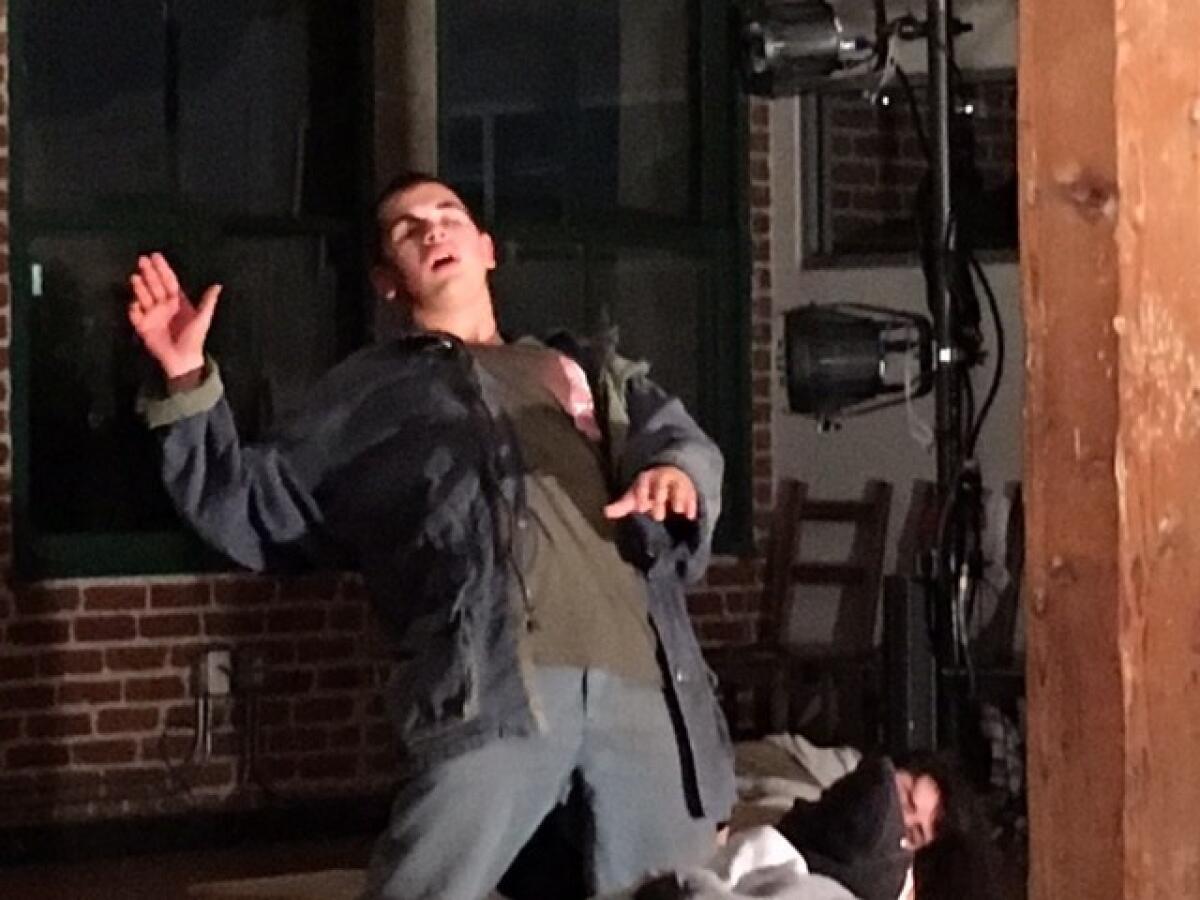CalArts play ‘Shelter’ gives voice to immigrant children

A scene from CalArts’ “Shelter,” as performed at Carecen in MacArthur Park on Friday.
Theater director Martin Acosta’s words nearly leaped off the program: “There’s a silent tragedy crossing my country, Mexico.”
That tragedy would be the many thousands of Central American teens and children escaping violence in their home countries and making the dangerous journey to the U.S. alone, without parents or guardians.
The program? It was for “Shelter,” a new CalArts production, directed by Acosta, giving voice to those young people’s stories of riding the treacherous “La Bestia” cargo train and navigating the U.S. deportation and shelter systems afterward.
On Friday evening, about 100 of those programs were passed out to friends, family, press and others at the L.A. headquarters of Carecen, a Central American refugee support center, during a sneak peek presentation of “Shelter.” The production was written by CalArts faculty member Marrisa Chibas, who spent more than a year interviewing immigrant children who had crossed the U.S. border and are now living in L.A. Some of those children even sat in on workshops as Chibas, Acosta and their actors developed the “movement-based theatrical performance,” as it’s described.
Perhaps because of those interviews, a gritty sense of emotional realism came through in the production, even with its pared-down set – seven cardboard boxes to accompany as many actors – and sparse dialogue. The long sequences of choreographed pantomime, studded with intermittent snippets of song, still conveyed a narrative that was visceral, powerful and moving. Under the golden glow of spotlights and with playful strobe-light effects, “Shelter” almost felt cinematic.
The minimalist nature of the production was purposeful. “Shelter” is meant to be as populist as theater gets. The performance is in both English and Spanish, it’s free, and there are two versions of it, a staged rendition with a full set designed by Efren Delgadillo Jr. and a portable, stripped-down version to be performed in community centers, parks and elsewhere. Friday’s special presentation was the latter.
And sometimes, a fragment is all is takes to convey the bigger picture.
“I do not know how to do politics,” Acosta wrote in the “Shelter” program. “And I do not know what decisions need to be taken. I know how to do theater. And so I try to reconstruct a piece of memory. The fragment which today I am entrusted to.”
“Shelter” debuts debuts April 8 at Lincoln Park in East L.A. www.calarts.edu/shelter
Follow me on Twitter: @debvankin
Hoy: Léa esta historia en español
More to Read
The biggest entertainment stories
Get our big stories about Hollywood, film, television, music, arts, culture and more right in your inbox as soon as they publish.
You may occasionally receive promotional content from the Los Angeles Times.











